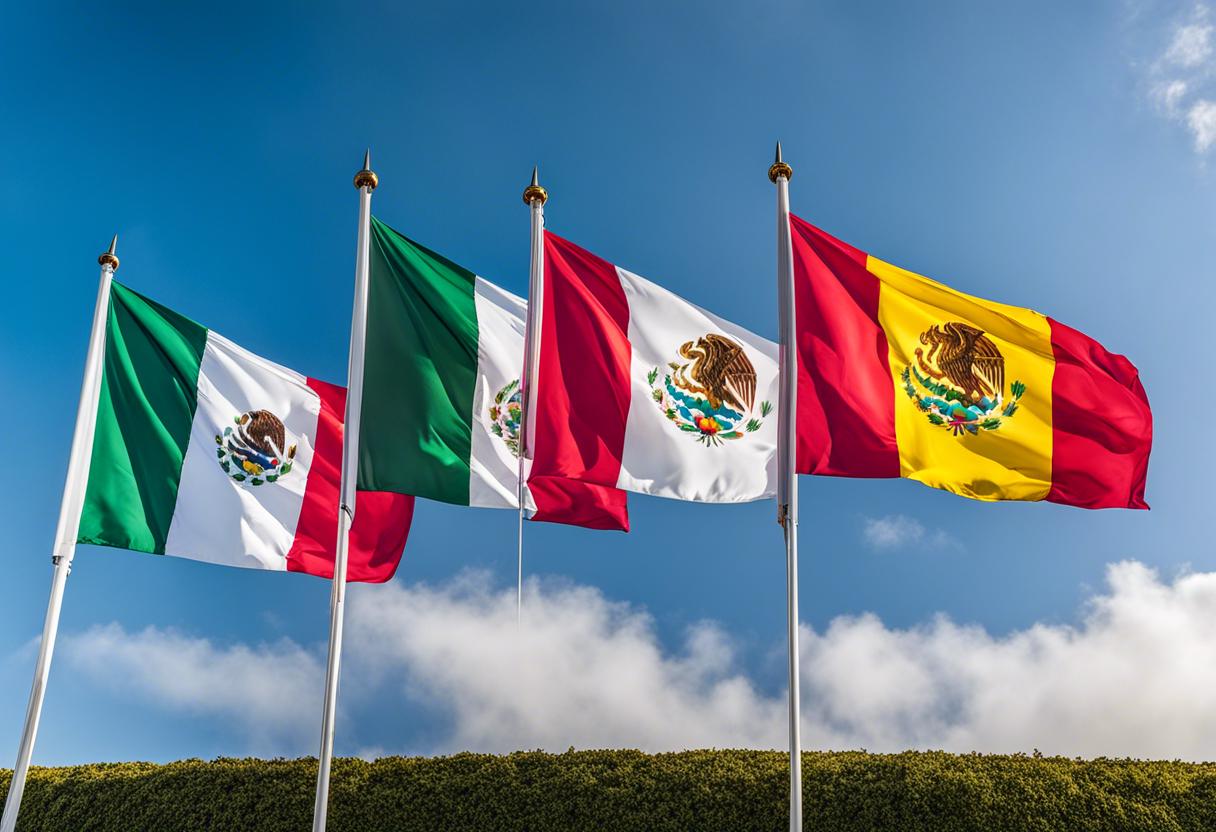Ecuador’s authorities’ decision to apprehend a fugitive politician from within the Mexican Embassy, where he had taken sanctuary, has escalated tensions between the two already conflicting nations. However, this action could potentially boost the political standing of the Ecuadorian President, Daniel Noboa. Noboa, struggling with waning approval ratings due to escalating violence ahead of a deciding referendum, may find this discord with Mexico – leading to the cessation of diplomatic ties – to his advantage.
The apprehended politician, former Ecuadorian Vice President Jorge Glas, who was convicted for corruption, had been living in Mexico’s Embassy in Quito since December. Upon being granted asylum by Mexico on Friday, the Ecuadorian police promptly intervened.
According to President Noboa’s office, the arrest was validated by Mexico’s abuse of diplomatic mission immunities and privileges. Additionally, this stern move aligns with Noboa’s assertive strategy of tackling Ecuador’s violence and corruption issues.
Noboa, a 36-year-old right-wing leader, assumed power in November when the previous president, Guillermo Lasso, initiated early elections amid impeachment procedures stemming from misappropriation charges. Noboa will continue to fulfil Lasso’s term until May 2025.
Experts indicate that crucial to Noboa’s reelection will be his capability to enforce law and order in Ecuador – a country of nearly 18 million – which involves combating prevalent gangs and corruption within the government that aids criminal groups. The embassy arrest seems to echo his commitment towards eradicating lawlessness.
“He pursued this action to shift the negative attention from him and turn the conversation in his favour,” stated Ecuadorian political analyst, Agustín Burbano de Lara.
During Rafael Correa’s leftist presidencies, Glas held several ministerial posts, including that of Vice President. In 2017, he was ousted from office and jailed for six years on bribery charges. Another corruption conviction in 2020 resulted in an eight-year sentence for both Glas and Correa. Glas, freed in 2022, subsequently sought refuge in Mexico, thereby straining Ecuador-Mexico relations. March saw an announcement from Ecuador’s foreign ministry that they had appealed to Mexico for Glas’s arrest.
Noboa’s popularity has taken a hit recently with a decrease in approval ratings from 85% to 74% due to surging violence in Ecuador. The situation worsened in January when gang violence engulfed the coastal city of Guayaquil. To combat this, Noboa invoked an internal conflict, deploying military troops to patrol streets and prisons in an effort to quell increasing gang violence linked to drug trafficking.
This strategy seemingly brought some temporary stability to areas including Guayaquil, but unfortunately, it was short-lived. During the Easter holidays, Ecuador witnessed 137 killings, and kidnappings alongside extortion activities intensified.
In a fortnight, the people of Ecuador will cast their vote on a referendum that proposes tougher prison sentences for certain crimes and aims to enshrine the increased military presence into law.
Though it’s too early to predict the impact of Glas’s arrest on Noboa’s electoral chances, support for the move was voiced by several citizens on Sunday. Danilo Álvarez, a salesperson from Guayaquil, one of the most violent cities in the country, expressed his resentment towards Mexico for granting asylum to convicts.
Recalling a harrowing experience where robbers invaded his home and threatened his life, he stated that it took him quite some time to restore his peace of mind. However, not all citizens echoed this sentiment.
Stating it as a blatant disregard for international law, Delfa Mantilla, a retired teacher criticised Noboa’s action as a display of his arrogant, rich-boy persona with no empathy. There is also a concern about the potential fallout of this diplomatic spat on ordinary citizens. Both nations have seen a surge in transnational crime, with Ecuador being used as a base for many Mexican cartels. Every year, numerous Ecuadorians journey through Mexico en route to the United States.
“Mario Zalamar, a commercial engineer of 34 years old, expressed mixed sentiments regarding Glas’ imprisonment, emphasising that while he perceives it as justifiable, the potential implications on Ecuadorians journeying through Mexico for a future in America are unclear. Despite numerous Ecuadorian supporters of the embassy capture, the incident may likely exacerbate existing diplomatic tensions for the country and undermine its bonds with neighbouring nations.
Honduras, Brazil, Colombia, and Argentina have united in support of Mexico, publically reprimanding the apprehension. The Nicaraguan government has also suspended its diplomatic ties with Ecuador, labelling the arrest as a ‘neo-fascist political atrocity’, in a statement distributed via their national media.
US state department spokesperson Matthew Miller emphatically denounced any infringement of the Vienna Convention on Diplomatic Relations, asserting their stern adherence to international law that demands respect for the sanctity of diplomatic missions. He urged for a resolution between the feuding nations.”

